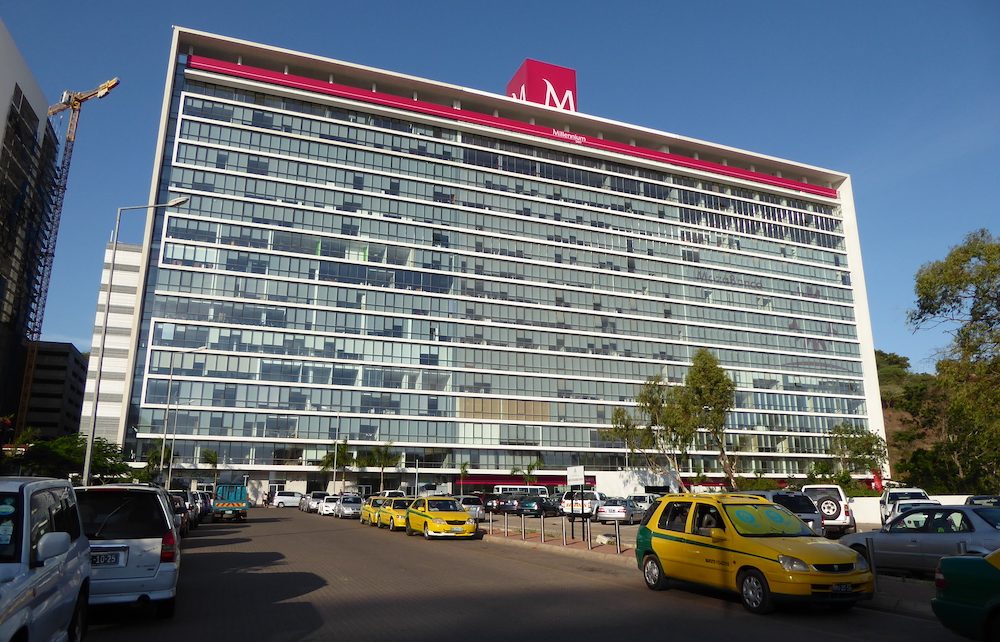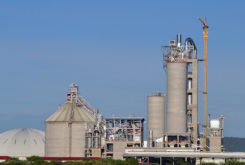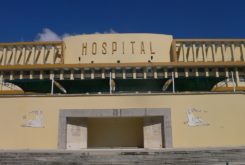Current international trade disputes, most notably between the US and China, are slowing global growth. With the price of commodities also on a downturn, economy’s like Mozambique’s, heavily dependent on such efforts, are already taking a hit. While Mozambican coal and aluminium exports are cause for concern, expectations about the natural gas boom continue to grow.
In a recent report, Mozambique’s biggest bank, Millennium BIM, considers current trade and geopolitical tensions, at a global level, as a top risk, with high priority. This, according to the bank’s study, should lead to price volatilities and also a worsening of the country’s foreign accounts.
Also high risk is a slowdown in economic growth in both the richest economies and emerging markets, which should have as a consequence a reduction in international capital flows and lower demand for commodities.
Already in the first half of 2019, Mozambique has suffered from a lowering of both the exports of coal (from US$751 million in the first half of 2018 to US$690 million in the first six months of this year) and aluminium (to US$505 million in the first semester of this year, US$130 million less than last year).
Other major exports – natural gas, gemstones and wood – all went down in the first six months of the year, according to official statistics.
On the other hand, imports are heading up, especially machinery, likely because of the launch of projects in the nascent natural gas industry, but also pharmaceuticals and wheat. Combined with the drop in exports, this means the country’s trade deficit has worsened.
According to Millennium BIM, Mozambique should respond to this external environment by diversifying exports, in terms of also markets, in order to strengthen the economy’s “resilience and competitiveness.”
Other high probability risks include the country’s “debt distress,” having already defaulted on loans, a trend which the IMF expects to continue until 2023. Likely consequences, according to Millennium BIM, include a further downgrade of Mozambique’s credit rating – already with “junk” status for major rating agencies – and a worsening of the budget deficit.
The bank also factors into its analysis a high probability in extreme weather, which could lead to the destruction of infrastructure, as well as a drop in production output and rising prices. Such an impact occurred earlier this year when tropical cyclones Idai and Kenneth derailed the country’s improving economic situation and incurred additional debt in the form of US$118 million in emergency assistance from the IMF.
The furthering of insurgent attacks in Cabo Delgado province (north), limiting the circulation of goods and a deterioration in the business environment, is a medium probability risk for the analysts at Mozambique’s top bank.
In the next few years, Mozambique’s economy will have major developments connected to the launch of its natural gas industry. As Millennium BIM’s report put it, these projects will turn the country into a “rising star in the next decade, with a transformation of the business landscape foreseen.”
Total investment in the two natural gas projects in the Rovuma Basin is estimated at US$60 billion, roughly five times the country’s GDP in 2017 (US$12.33 million), and “the biggest investment in the history of Africa,” according to the bank.
Gas exports are set to begin around 2023, boosting economic growth in that year to 8.1 per cent with growth peaking at 9.1 per cent in 2024, according to Millennium BIM’s estimations, before gradually dropping back down to 7.1 per cent by 2027. The IMF largely agrees, although it anticipates an even sharper initial rise, to 9.2 per cent in 2023 and 11.5 per cent in 2024, the cut-off year for their forecasting.
In the long term, the bank adds, the extractive industry will add 30 per cent to the country’s GDP, enlarging the economic base and diversifying exports.
Beyond the peak in natural gas production, the projects in the Rovuma Basin should boost the local infrastructure and job market. According to the Mozambican bank’s analysis, the work force in this industry should be 75 per cent local, and 80 per cent of the companies involved should also be Mozambican.
New infrastructure to be developed include roads and bridges, ports, railways and airports. Industries likely to experience an upsurge in demand include engineering, transportation and logistics, and security. Agriculture and industry are also expected to benefit with the growth of population and economic activity in Cabo Delgado province.
Other benefits will be felt in the government’s accounts, according to Millennium BIM. The income from tax and natural gas sales – the state oil and gas company, Petromoc, is also a shareholder in the groups involved in both Rovuma Basin projects – as well as exports, will lead to a balancing of foreign accounts, lowering the pressure on the state’s accounts. This situation will also allow for the building up of foreign reserves and a more expansionist monetary policy. In the long run, this could mean lower tax rates and a stronger demand for credit.
For Mozambique’s currency – which has been hit hard in recent years with the lowering of economic output and the distress in the state’s finances – the natural gas boom will mean a valuation. Inflation could be heading further down, in single digits, according to Millennium BIM’s forecast.
Already, says the bank, inflation is at historical lows, interest rates are going down and credit to the private sector is “recovering gradually.”




